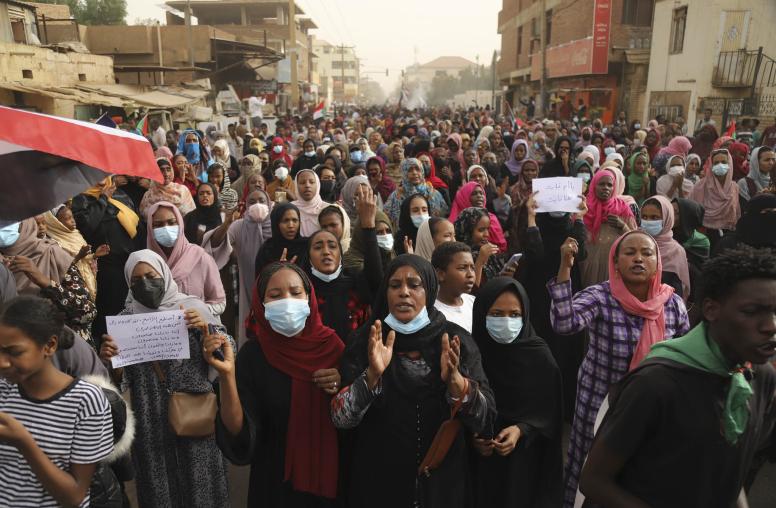 Nonviolent Action
Nonviolent Action
Individuals and organizations facing restrictive, oppressive and/or authoritarian forms of governance may be able to employ hundreds of nonviolent methods to amplify their voices, challenge power dynamics and press for reform. Tactics include protests, boycotts, sit-ins, civil disobedience and alternative institutions. Nonviolent resistance has been shown empirically to be twice as effective as armed struggle in achieving major political goals. The U.S. Institute of Peace promotes nonviolent approaches through education and training in strategic nonviolent action and movement-building; applied research on such movements and the efficacy of outside support; and publications that inform the work of policymakers to advance alternatives to violence.
Featured Publications

En Venezuela, la acción no violenta es clave para una transición democrática negociada
El 28 de julio, Venezuela celebró una de las elecciones más importantes de su historia. La oposición política del país, liderada por María Corina Machado, superó la desilusión popular, las divisiones políticas y un sistema electoral amañado para obtener una aplastante victoria para su candidato de unidad, Edmundo González Urrutia. Según un grupo de la sociedad civil, los cálculos «extrapolados de los recibos oficiales del conteo de votos» de una muestra representativa de centros de votación locales otorgan a González el 66% de los votos. La oposición venezolana respondió al momento con una inspirada campaña prodemocracia.

In Venezuela, Nonviolent Action Is Key to a Negotiated Democratic Transition
On July 28, Venezuela held one of the most consequential elections in its history. The country’s political opposition, led by Maria Corina Machado, overcame popular disillusionment, political divides and a rigged electoral system to earn a landslide victory for its unity candidate, Edmundo González Urrutia. According to one civil society group, estimates “extrapolated from the official vote count receipts” from a representative sample of local voting centers give González 66% of the vote. Venezuela’s opposition met the moment with an inspired pro-democracy campaign.

¿Qué papel pueden desempeñar los movimientos sociales noviolentos en procesos de paz?
Cuando comenzaron las negociaciones entre el gobierno colombiano y el grupo armado de las FARC en 2013, apenas había una mujer entre los 20 negociadores. Dos años más tarde, el 20% de los negociadores del gobierno y el 43% de los negociadores de las FARC eran mujeres. Su participación amplió la agenda de las negociaciones que desembocaron en el histórico acuerdo de paz de 2016, que incluía importantes provisiones en materia de género. La participación de las mujeres en el proceso de paz de Colombia constituyó un claro éxito en la construcción de paz, y fue posible gracias a una coalición nacional de mujeres muy diversa, que se movilizó para insistir en unas negociaciones que incluyeran la perspectiva de género.
Current Projects

Youth and LGBTQ+ in Nonviolent Action: The WiRe+ Data Set
Over the past two years, and in collaboration with Dr. Erica Chenoweth and Dr. Zoe Marks of Harvard University, USIP has been collecting cross-national data on the frequency and extent of youth and LGBTQ+ frontline participation in major nonviolent action campaigns from 1990-2020. The resulting data set helps to illuminate both the causes and the consequences of youth and LGBTQ+ participation in social movements — with implications for activists, policymakers and academics looking to better support nonviolent action campaigns.

The USIP Learning Agenda
In support of the Evidence Act and as part of the U.S. national security architecture, USIP is carrying out its own learning agenda. Peacebuilding has long been viewed as too messy and complex for evidence-based approaches — but USIP’s mix of research and practice belies that assumption.

Civic Mobilization in Civil Resistance Transitions Dataset
Since January 2021, USIP has been collecting data on the frequency and characteristics of civic mobilization in 83 political transitions initiated through civil resistance from 1945 to the present to help understand when challenges to democratic progress have been successfully overcome and provide practical lessons learned for activists, policymakers and academics interested in nonviolent action and democratization.